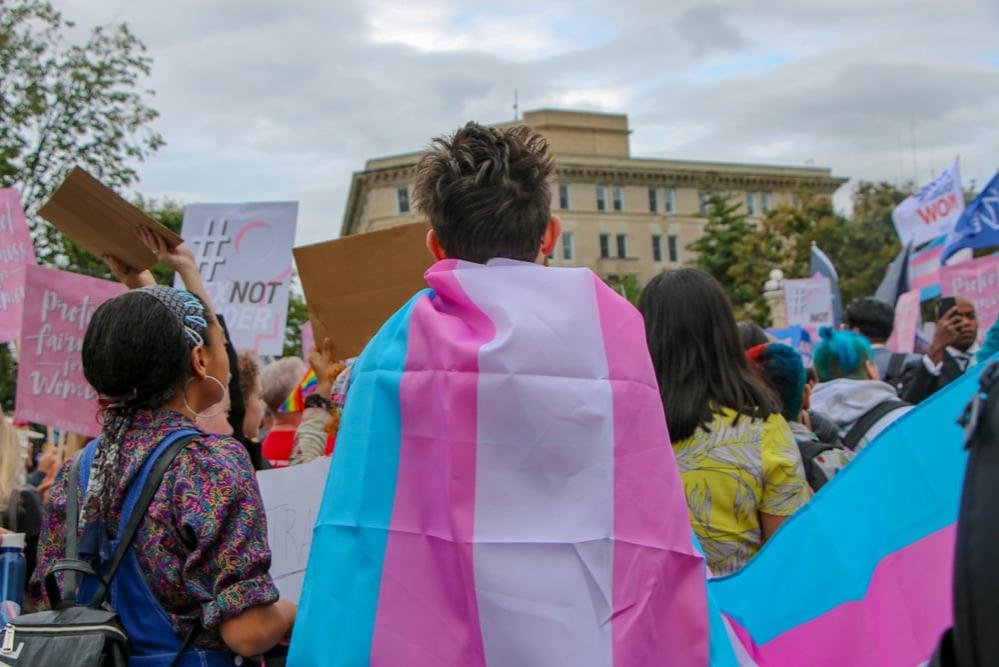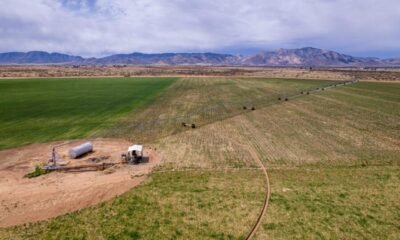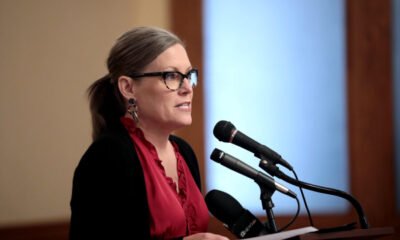arizona
House Republicans Advance Controversial Anti-Trans Legislation Defining ‘Biological Sex’

In a significant move reflecting national trends, Arizona House Republicans passed House Bill 2062 on Wednesday, effectively narrowing the definition of biological sex under state law. The bill, which passed 32-27 along party lines, is designed to limit recognition of gender identity based solely on physical reproductive characteristics.
Opponents argue that this legislation seeks to erase transgender individuals from public life. Democrats in the House voiced their frustrations, urging their Republican counterparts to prioritize pressing issues like education and housing instead of targeting marginalized groups.
Rep. Stephanie Simacek, a Democrat from Phoenix, characterized the legislation as “absolutely disgusting,” highlighting a lack of awareness regarding its broader implications for human rights. The bill permits schools and state agencies to prohibit transgender individuals from using facilities that align with their gender identity and disallows their participation in sports teams and shelters that correspond with their identities.
Sponsored by Rep. Lisa Fink of Glendale, the bill claims to merely clarify definitions of “man,” “woman,” “male,” and “female” in state statutes. Fink emphasized the importance of “biologically accurate” data collection but did not disclose her background in anti-trans advocacy.
Fink’s affiliation with the Protect Arizona Children Coalition, known for opposing what it calls “gender ideology programming,” adds layers to her motivations. Notably, she is also involved in ongoing litigation against Arizona’s ban on transgender girls participating in sports.
The national anti-trans rhetoric has intensified in recent years, with a striking momentum following actions taken by former President Trump. His administration has issued multiple executive orders impacting the rights of transgender individuals, drawing ire from activists and marginalized communities.
During the Feb. 5 debate on the bill, Rep. Lorena Austin, D-Mesa, the only nonbinary member of the Legislature, expressed disappointment over the lack of engagement from Republican legislators regarding the effects of the proposed law on the transgender community. Austin urged for a dialogue based on understanding rather than division.
Rep. Patty Contreras, co-chair of the Legislature’s LGBTQ caucus, criticized the legislation as harmful and rooted in ignorance. She stated that the government should not engage in bullying vulnerable populations, especially when such actions contradict the values espoused by many of her Republican colleagues.
While supporters of the bill argue it aligns with their religious convictions, critics assert that it opens the door to systemic discrimination against transgender individuals. The legislation not only impacts public facilities but poses potential legal challenges from those facing discrimination based on state policies influenced by the bill.
Contreras underscored the tangible consequences of such measures, recalling a transgender day of remembrance she attended last year, commemorating those lost to hate-fueled violence. She cautioned that legislation like HB2062 fosters an environment where hate and discrimination can flourish.
Fink refuted claims that her bill promotes discrimination, referencing the Civil Rights Act of 1964 as a protective measure for transgender individuals. However, ongoing shifts within the U.S. Supreme Court have raised concerns about the stability of these protections.
As the bill moves to the Arizona Senate, where a Republican majority is expected to support it, its future remains uncertain. Democratic Gov. Katie Hobbs has indicated her commitment to vetoing any legislation that infringes upon the rights of the LGBTQ community, having previously blocked a similar proposal last year.


















